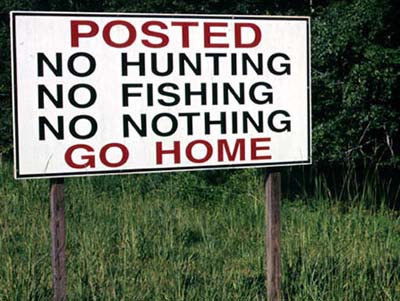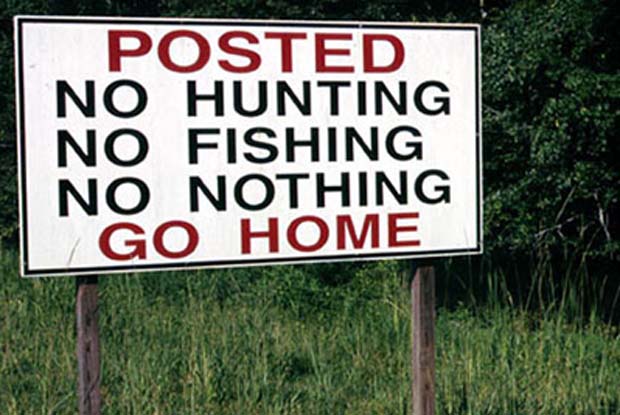 Access to land and water for fishing and hunting, which generates $70 billion, is now being challenged by dumb, bought and paid for state and federal legislators
Access to land and water for fishing and hunting, which generates $70 billion, is now being challenged by dumb, bought and paid for state and federal legislators
[dropcap]F[/dropcap]or the first time in history, access has become the most important priority to sportsmen over 2nd amendment rights according to polls and surveys conducted over the last four years by reputable firms like Southwick Associates. Our sporting heritage is defined by the North American Model of Wildlife Conservation and the Public Trust Doctrine. They are great societal achievements that set our country apart by declaring that fish and wildlife belong to each and every citizen with equal opportunities to enjoy them.
 Hunters and anglers all around the country have advocated for “Open Fields” provisions in the Farm Bill that incentivize private landowner participation in public access programs. Sportsmen organizations have rallied behind legislative and administrative efforts to secure access to quality hunting and fishing grounds on our public lands and waters that have become isolated, landlocked without legal easement, or entangled in ownership disputes. Both organizations and individuals around the country have helped shape these policy vehicles so that they not only address the physical issue of access but also prioritize conservation, habitat protection, responsible land management policies, and protect against the privatization of public lands and wildlife.
Hunters and anglers all around the country have advocated for “Open Fields” provisions in the Farm Bill that incentivize private landowner participation in public access programs. Sportsmen organizations have rallied behind legislative and administrative efforts to secure access to quality hunting and fishing grounds on our public lands and waters that have become isolated, landlocked without legal easement, or entangled in ownership disputes. Both organizations and individuals around the country have helped shape these policy vehicles so that they not only address the physical issue of access but also prioritize conservation, habitat protection, responsible land management policies, and protect against the privatization of public lands and wildlife.
Hunters and anglers know that sometimes the hike in is worth the pack out and it’s imperative that we balance motorized vehicle use with the importance of maintaining habitat and non-motorized recreational opportunities. The concept of access and opportunity also extends beyond physical barriers. There are forces working against the diligence of sportsmen and women to dismantle the North American Model in favor of a model that benefits only the wealthiest people who can pay for the privilege. Agricultural interests are domesticating wildlife for monetary gain, misguided advocates of privatizing wildlife are cultivating highly lucrative markets for shooting trophy animals genetically managed for their size, and animal rightists organizations are working to ban hunting altogether by appealing to people’s emotions and fabricating flawed morality arguments. It’s these things that demand our vigilance so that we keep our traditions and values alive and it’s our obligation to future generations that will inherit this legacy.
Finding places to hunt and fish becomes more challenging each year. When asked in a HunterSurvey.com poll if access to any of the places they tried to hunt in the past year had been restricted or placed off limits, approximately 23 percent of hunters said it had. Nearly one in four sportsmen nationwide is potentially losing access to available hunting land. This has a host of negative impacts including:
• An economic threat to the $70 billion generated by hunters and anglers annually;
• Decreased funds for habitat conservation through license sales, ducks stamps, and excise taxes on fishing and hunting equipment;
• Lost connections to the outdoors and
• Limitations on where to bring the next generation of conservationists to learn to hunt and fish.


